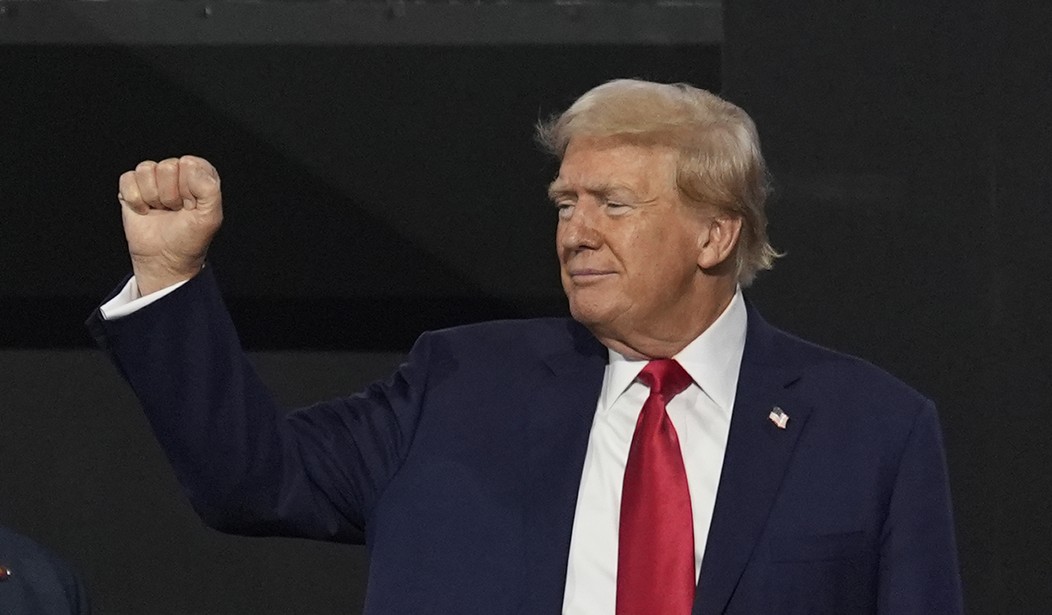Joe Biden sat down to what he thought would be a softball interview with NBC's Lester Holt. Instead, Holt actually imitated a journalist and asked questions that made Biden angry, defensive, and snippy.
“I guess I was talking about at the time was, there was very little focus on Trump’s agenda,” the chief executive said.
“Yeah, the term was ‘bull’s-eye,’” Holt pointed out.
At that point, Biden almost said that using the word "bullseye" was a mistake. Almost, but not quite. “It was a mistake to use the wor — I didn’t say crosshairs, I meant bullseye, I meant focus on him, focus on what he’s doing, focus on his policies, focus on the number of lies he told in the debate,” Biden said.
So, using a word that means pretty much exactly the same thing as "crosshairs" is OK because he really didn't mean "crosshairs."
“Look, I’m not the guy that said ‘I want to be a dictator on day one.' I’m not the guy that refused to accept the outcome of the election. I’m not the guy who said that he wouldn’t accept the outcome of this election automatically.”
Why should it matter if Trump wants to be dictator "on day one?" It's a constitutional impossibility and if he tries it, every court in the land will slap him down. But Democrats are pretending Trump meant it and that it's a possibility anyway.
Biden claims that he used "bullseye" to describe "focus." But Holt homed in on the fact that Biden's comment may have incited violence: “Have you taken a step back and done a little soul-searching on things that you may have said that could incite people who are not balanced?”
“How do you talk about the threat to democracy, which is real, when a president says things like he says? Do you just not say anything because it may incite somebody?” Biden shot back.
Well, yeah. That's the standard that Democrats apply to Republicans. Sarah Palin was accused of inciting the shooting of Rep. Gabby Giffords in 2011, and all she did was put crosshairs on a congressional district map.
In the interview with Holt, Biden appeared to blame Trump for the shooting.
While taking care to express how grateful he is that Trump was not seriously wounded in the shooting, Biden also blamed him for intensifying political rhetoric across the United States.
He in particular pointed – as he often does – toward his comments after the rally of White supremacists in Charlottesville, Virginia, in 2017, and his denial of the results of the 2020 election that led to the 2021 insurrection at the Capitol.
“Look. There’s so much violence now. … There’s no place at all for violence in politics in America. None. Zero. And we’ve reached the point where it’s become too commonplace,” Biden said. “Not assassinations, but to talk about, for example, January 6, the attack on the Capitol.”
Both sides calling for "lowering the temperature" is rank hypocrisy. It's just another avenue of attack. When Trump said on Monday that his court cases should be dropped, Democrats immediately shot back that Trump couldn't even be civil for 24 hours.
Related: Washington's Favorite Game — the Blame Game — Is Well Underway
The fact is, calls for "unity" in the midst of a presidential campaign ARE "boilerplate political speech," according to Khalil Gibran Muhammad, Ford Foundation Professor of History, Race and Public Policy at the Harvard Kennedy School.
“Very few people — in any newsroom, in any executive chamber or political campaign right now — has direct experience with something like this,” Muhammad said on Boston Public Radio Monday. “We are a bit in uncharted waters when it comes to, like: what do you actually say?”
Muhammad said political violence in the United States has become an increasing reality, this assassination attempt being just the latest example. But today’s calls for civility, he argued, look more like lip service instead of politicians committing to working with their peers who they “strenuously disagree” with.
“Sometimes we substitute calls for unity and civility with the hard work of actually transacting different ideas in a democracy,” he said.
There's more to be gained politically by calling out the other side for breaking the civility pact than actually being, like, civil to each other. That's the reality in 21st-century America.










Join the conversation as a VIP Member